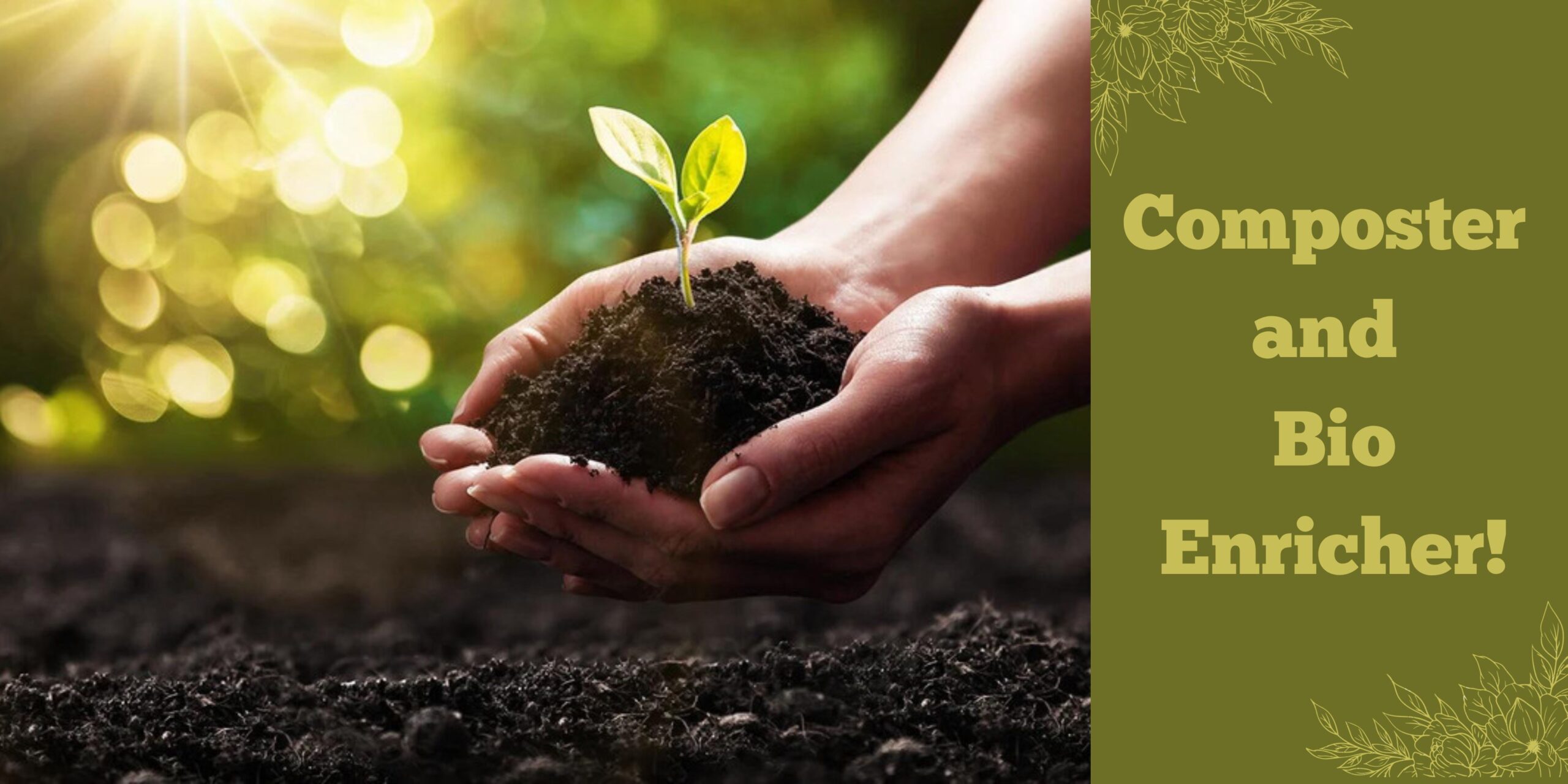
Composter and Bio Enricher!
The benefits of composter and bio-enricher are entirely described in this post. Composting is the procedure of turning plant and animal matter into useful fertiliser. Food scraps, leaves, straws, grass clippings, and even used coffee grounds are all examples of things that can be composted.
Composting helps cut down on pollution, recycles organic waste, lowers the cost of fertilisers and other inputs needed for agriculture, and, most importantly, adds nutrients to the soil that are important for crop growth and food supply.
Plants grow better when compost, which is made of decomposed organic matter, is added to the soil. Composting could be done with the food scraps and yard waste we throw away now, which make up more than 30% of what we throw away.
By composting, these things don’t end up in landfills, where they would take up space and make methane, a potent greenhouse gas. They are instead turned into compost.
More about composting
Microorganisms which is very beneficial to plants and oxygen are responsible for decomposition, the natural process by which organic matter breaks down. Composting at home isn’t cheap, but the end result, which you can call compost or humus. A nutrient-rich material called humus can be utilised in your yard and garden as a natural fertiliser.
Preventing soil erosion is one of the benefits of composter and bio-enricher. By adding nutrients and soil biota to the soil, compost helps to improve its biological, chemical, and physical health.
The nutrient-rich compost, which can be combined with topsoil, or used as a growth medium, is just one of the many ways this versatile material can be used.
Since ammonia is lost during the composting process, the nitrogen content of compost is lower than that of biosolids made by other stabilisation methods. Compost, on the other hand, releases nitrogen at a slower rate and makes it available to plants over a more extended period, which fits better with how plants take it up.
Environment and Water
Composting is a potent weapon in the fight against climate change. It cuts down on the amount of greenhouse gases in the air and makes ecosystems more resilient to rising temperatures.
Compost can be used to build new wetland habitats, keep existing ones in good shape, or fix the ones already there. Spreading compost in the space between roads and wetland areas could help clean up the pollution caused by cars. Wetland ecosystems also need a lot of organic matter, so compost is an excellent addition to reclaiming wetland areas.
Assisting in water management is included in the benefits of composter and bio-enricher. Compost is a good tool for managing stormwater because it can affect how water moves on and through the soil.
Compost can absorb and move water well, so it can help manage stormwater and save water resources. This will help the environment and make farmlands less likely to be damaged by drought.
Advantages of composter
Compost also has the added benefit of lowering long-term maintenance costs associated with organic farming. This is because compost helps plants thrive, reducing the number of plants that die and the costs of replacing them. Also, compost makes plants more resistant to drought, so they don’t need as much artificial watering.
Promoting healthier plant growth is one of the benefits of composter and bio-enricher. Most people know and use compost because of its ability to help plants grow healthy and stop the spread of plant diseases.
Composting has many benefits, one of which is that it helps to reduce the amount of trash that is made since compost is usually made from waste like food scraps and organic leftovers that would otherwise go to landfills. By doing this, waste that would otherwise end up in landfills is reduced and transformed into something useful and environmentally friendly.
There are some of the best composters and bio-enrichers available for sale at the Uyir Organic Farmers Market